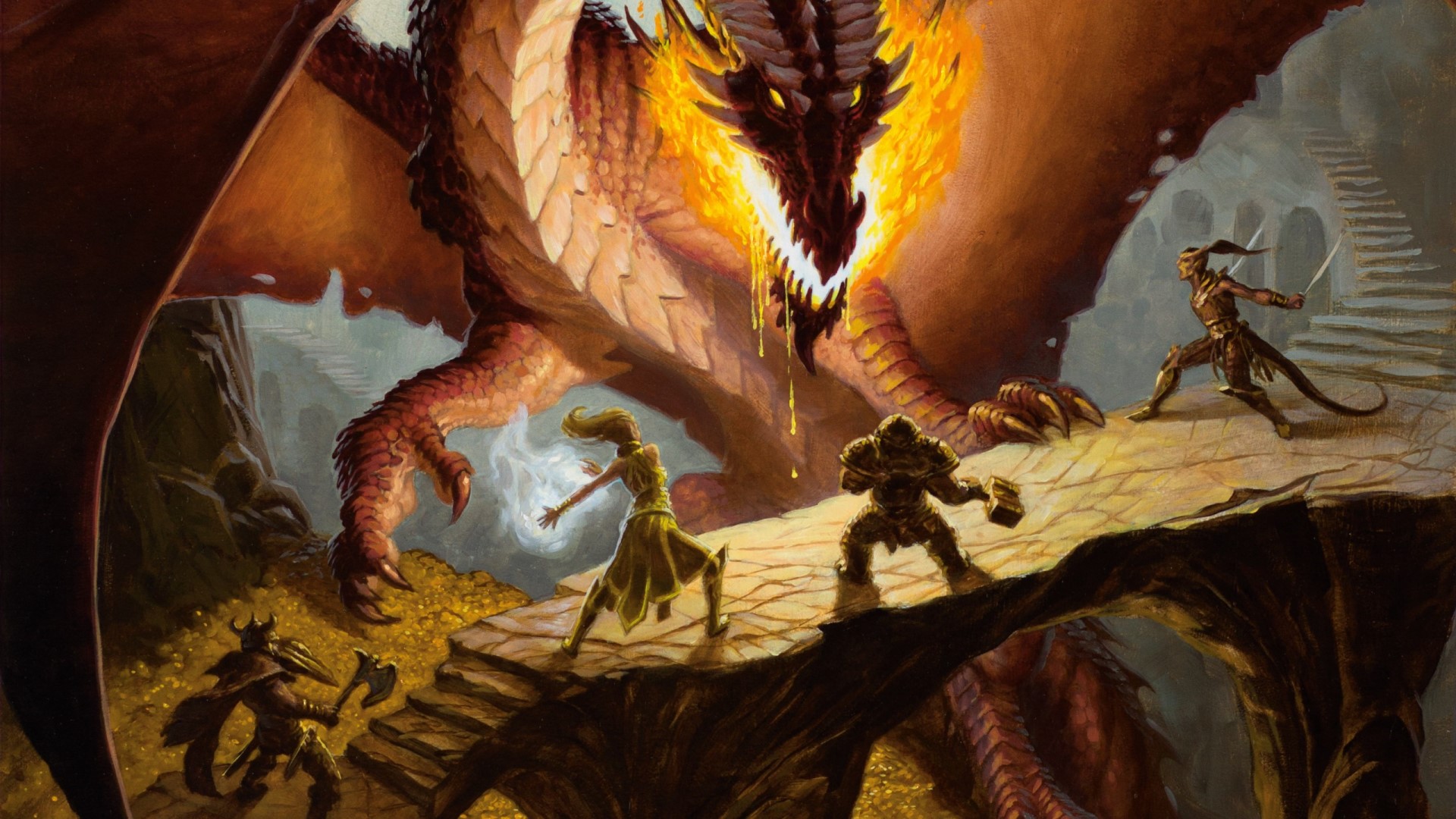There are 12 classes in the Dungeons and Dragons fifth edition (DnD 5E) Player’s Handbook; from robed spellcasters, to great axe-wielding warriors, to enigmatic druids, fantasy fans are spoiled for choice. However, the 14-strong roster of DnD classes on offer may well appear overwhelming when you come to build a character for your next bold adventure.
Each of the DnD classes has unique mechanics and exciting roleplaying possibilities which will govern how you progress in your campaign, making them a key component in your D&D experience. Every choice comes with its own archetypes, playstyles, advantages and disadvantages, and, considering how much time you will be investing in your character, it’s vital to consider all options before you make a firm decision.
This guide covers all the D&D 5E Player’s Handbook classes, examining their basic stats, playstyles, and offering a few helpful tips. It also covers classes from other D&D books, and even popular homebrewed content. If you are a new player, or just fancy a quick refresher before deciding what class is best suited to you, this guide will help you choose before setting out on your next campaign.
Before we begin, let’s review 14 classes currently on offer in fifth edition Dungeons & Dragons.
What’s in a name, you ask? Well, quite a lot, actually – remember, this class is going to be your character’s fundamental defining category. People who don’t know your character’s name may well address you by your class, all campaign long – so make sure to pick one you like.
These are the 14 current D&D 5E classes:
A big question to ask yourself when looking at classes is what kind of role you want to take in the adventuring party. Do you want to be the armoured support, like a Cleric? Or maybe the flashy damage-dealer as a Sorcerer? To help guide your choice, there are six primary abilities in D&D:
- Strength
- Constitution
- Wisdom
- Charisma
- Intelligence
- Dexterity
Each class will specialise in a primary ability that governs character building and roleplaying options. For example, a Fighter will focus on strength, maybe tending to run into battle impulsively and solve their problems with combat, while a Bard will focus on charisma and charm their way out of sticky situations. When picking a class, look at their primary abilities and consider what sort of character you would want to roleplay.
You might already have a class in mind – but a good adventurer knows their allies’ skills and characteristics as well as their own, so make sure you check out all the classes before before venturing forth!
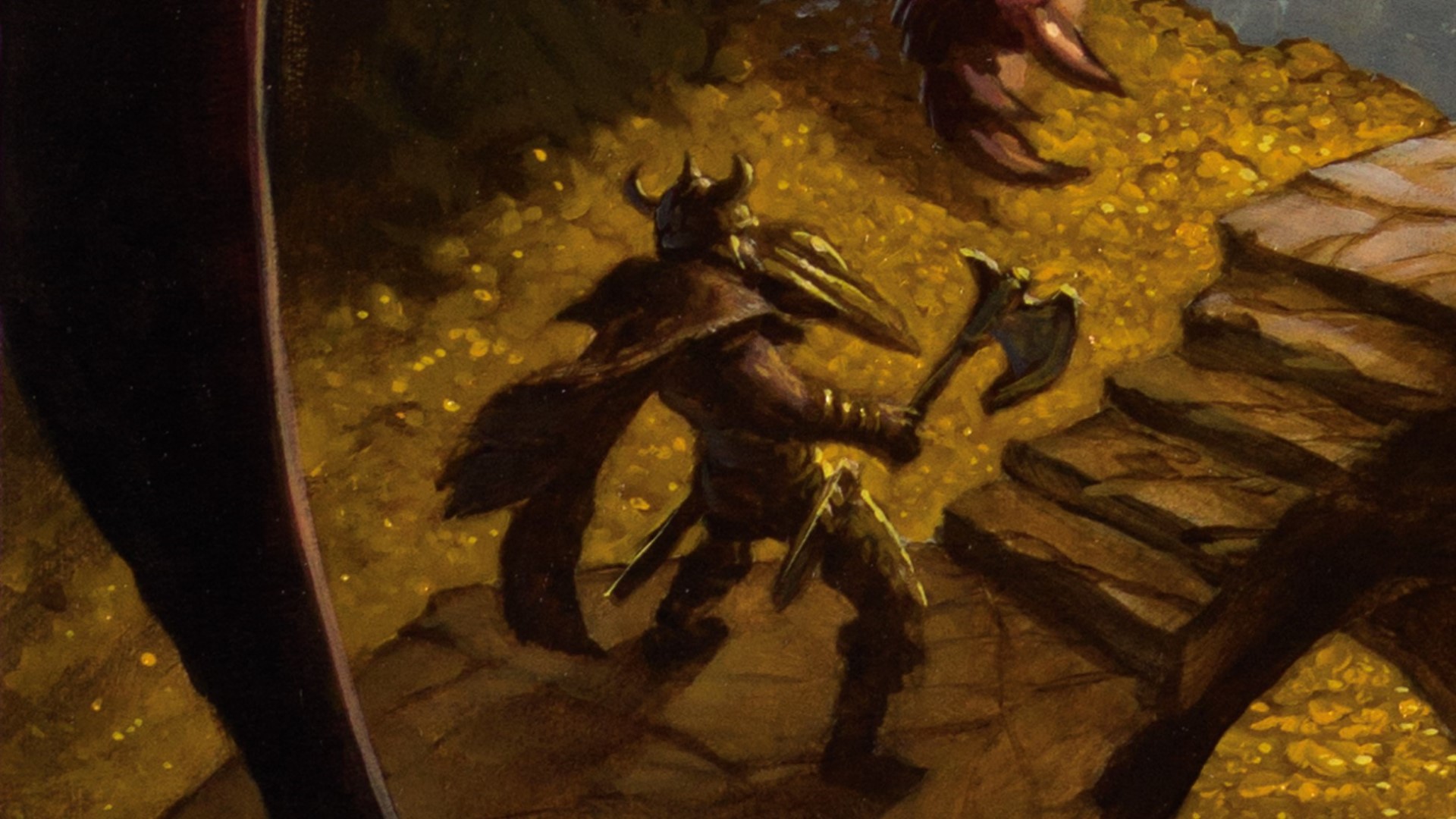 Read our full Barbarian guide
Read our full Barbarian guideBarbarian 5E
| Party Role | Damage dealer, Tank |
| Primary Ability | Strength |
| Saving Throws | Strength, Constitution |
| Hit Dice | 1d12 per Level |
| HP at 1st Level | 12 + Constitution modifier |
Yep, that’s right, he’s the one on the left with the horned helmet.
The embodiment of anger management issues, Barbarians are the classic muscle-bound, hot-headed warriors we all know and love. Based on figures like Conan or Boudica, they are heavy hitters who excel in battle.
With their rage ability and higher-level subclass features, they have the potential to deal devastating damage in combat and are near-impossible to take down because, of all the classes, they have the highest hit dice (which determine your health).
As this is a simple class that usually focuses on using brawn instead of brains, players will want to prioritise raising their strength, constitution and dexterity scores for an effective battle-ready Barbarian build.
Ready to start building your own skull-crushing, body-building badass? Read our full-on D&D Barbarian 5E class guide for all the best races, subclasses, and builds.
 Read our full Bard guide
Read our full Bard guideBard 5E
| Party Role | Utility, Support, Control |
| Primary Ability | Charisma |
| Saving Throws | Charisma, Dexterity |
| Hit Dice | 1d8 per Level |
| HP at 1st Level | 8+ Constitution modifier |
If you want to hone in on your roleplaying skills, the confident and charming Bard is a great choice. Often referred to as the ‘jack of all trades’ of the adventuring party, the Bard is a versatile class that can be a huge benefit to teammates, both in battle and social interactions.
A relatively tricky class to optimise, choosing the Bard’s spells requires strategic thinking and foresight. As they are primary spellcasters who truly shine in social situations, focus on raising their charisma score as you progress.
Thinking of taking up your lute / violin / bagpipes and setting out on a musical tour of the Forgotten Realms? Play out your options with our in-depth Bard 5E class guide.
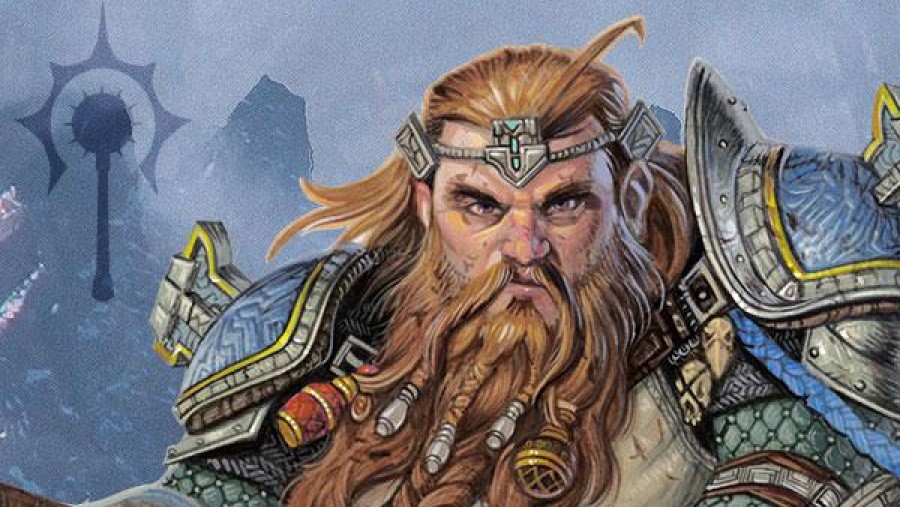 Read our full Cleric guide
Read our full Cleric guideCleric 5E
| Party Role | Support, Healer, Damage dealer |
| Primary Ability | Wisdom |
| Saving Throws | Wisdom, Charisma |
| Hit Dice | 1d8 per Level |
| HP at 1st Level | 8 + Constitution modifier |
Clerics are the divine agents of gods, and act as your tanky healer, smiting evil while keeping their party alive. However, Clerics can follow vastly different archetypes and playstyles based on which god and divine domain they choose.
The player’s handbook details seven divine domains that will dictate your party role; for example, if you are focused on healing, Life domain is a great choice, whereas combat-orientated Clerics will benefit from the War domain.
Since Clerics are primary spellcasters with a wisdom focus, and the party’s healer too, invest in their wisdom and constitution scores as you level up. With their simple spellcasting mechanic and baked-in roleplaying options, they are a great pick for first-time players.
Fancy yourself a devoted warrior of faith? Choose your pious path with our complete, in-depth Cleric 5E class guide.
 Read our full Druid guide
Read our full Druid guideDruid 5E
| Party Role | Utility, Support, Healer, Control |
| Primary Ability | Wisdom |
| Saving Throws | Intelligence, Wisdom |
| Hit Dice | 1d8 per Level |
| HP at 1st Level | 8 + Constitution modifier |
Ever wanted to be one with nature or transform into any creature? If the answer is yes, then the Druid class is for you. Druids are incredibly versatile, able to polymorph into beasts, heal the party and control the elements to turn a battle in your favour.
With quirky spells and an aversion to metal, roleplaying as an eccentric Druid can be fun for players who love mysticism and folklore. Another primary spellcaster, you should focus on raising your Druid’s wisdom score first and foremost.
If you’re set on becoming one with nature, plant yourself in the most fertile soil possible, with our comprehensive D&D Druid 5E class guide.
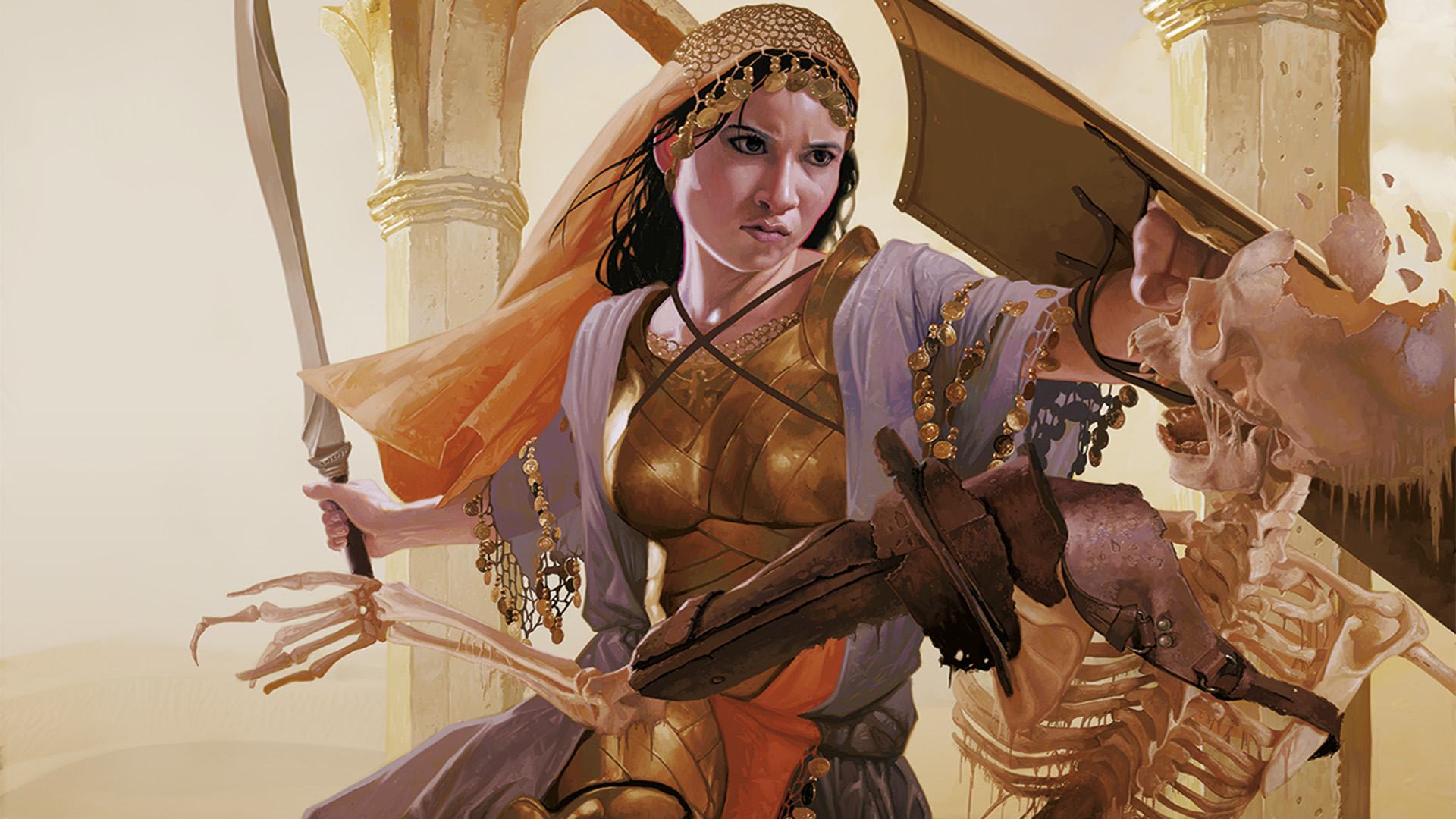 Read our full Fighter guide
Read our full Fighter guideFighter 5E
| Party Role | Tank, Damage dealer |
| Primary Ability | Strength or Dexterity |
| Saving Throws | Strength, Constitution |
| Hit Dice | 1d10 per Level |
| HP at 1st Level | 10 + Constitution modifier |
The classic action hero archetype, the Fighter is a specialised battle machine, and an excellent pick for players who love to deal damage in combat. Great for new players and an ideal base class to experiment with multiclassing, the Fighter offers a range of roleplaying possibilities.
Like the Barbarian, focus on strength/dexterity and constitution to make your Fighter a devastating force in combat.
Would you take the Fighter’s path? Begin your training with our complete D&D Fighter 5E class guide, including Fighting Styles, subclasses, races, builds, and more.
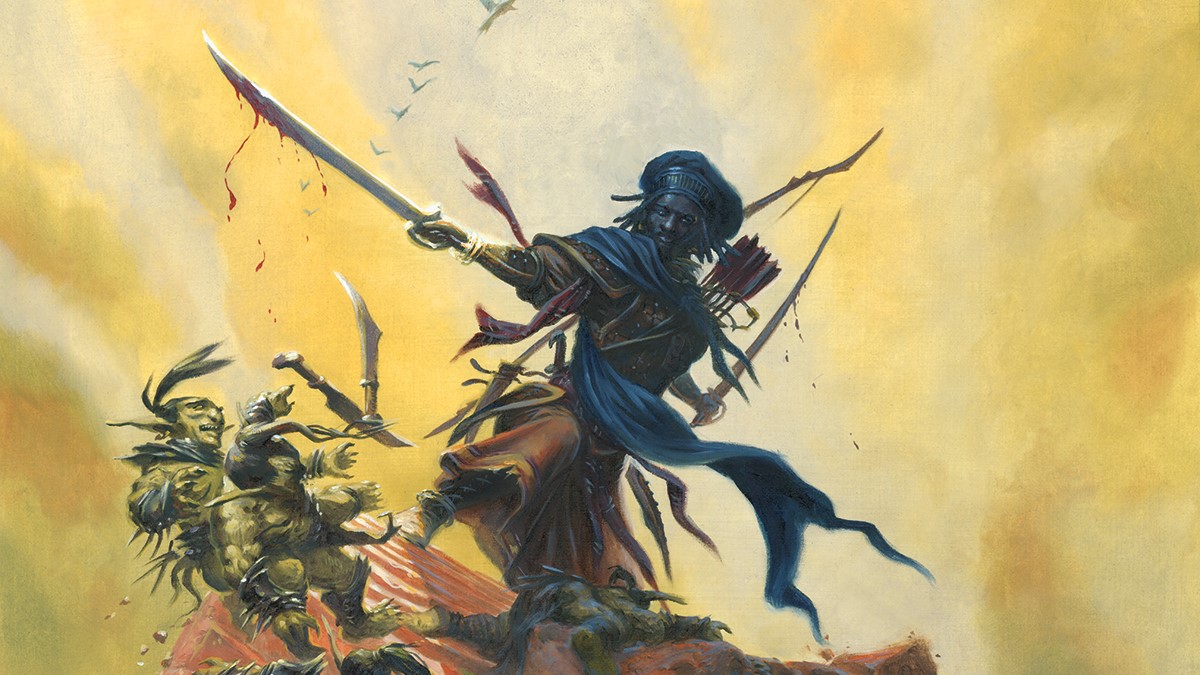 Read our full Monk guide
Read our full Monk guideMonk 5E
| Party Role | Damage dealer, Control |
| Primary Ability | Wisdom & Dexterity |
| Saving Throws | Dexterity, Strength (gain all saving throws at level 14) |
| Hit Dice | 1d8 per Level |
| HP at 1st Level | 8 + Constitution modifier |
Monks are the martial arts experts of the D&D world. Driven by discipline and the mystical force Ki, they destroy their enemies quickly and effectively. With their speed, Monks make excellent strikers in combat, able to break through enemy lines and target spellcasters. Their abilities make them great damage-dealers, but they can be challenging to play, due to their low hit dice and lack of armour proficiency.
The Monk class offers unique character options with tons of pop culture references for roleplaying, from ninjas to air/water/earth/fire-benders. Focus on raising your dexterity, wisdom and constitution scores as you progress.
Will you master the power of the Ki with your next D&D character? Our fully loaded D&D Monk 5E guide uncovers this class’s secret ways.
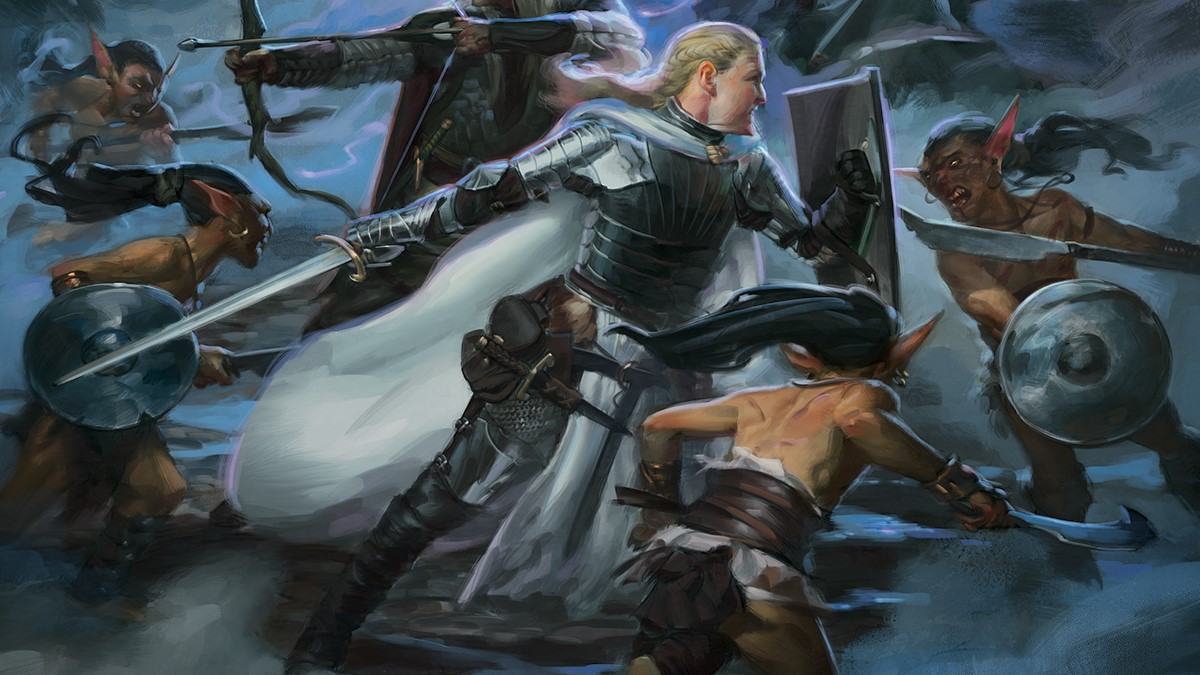 Read our full Paladin guide
Read our full Paladin guidePaladin 5E
| Party Role | Tank, Damage dealer, Support, Healer |
| Primary Ability | Strength & Charisma |
| Saving Throws | Wisdom, Charisma |
| Hit Dice | 1d10 per Level |
| HP at 1st Level | 10 + Constitution modifier |
Often taking the leadership role and becoming the face of the party, Paladins are a charismatic hybrid class, dealing in both spellcasting and melee combat. Unlike previous editions of the game, there are no alignment or religious restrictions for your Paladin in 5E, making them personality-driven and only bound to their chosen Oath. These Oaths will define your character’s play style, so pick carefully.
For a well-rounded Paladin that can support your party and act as the negotiator/diplomat in social situations, focus on raising your charisma and strength scores.
Are you truly set upon taking your Oath and joining the noble champions of the righteous? Dive into our comprehensive Paladin 5E guide for more.
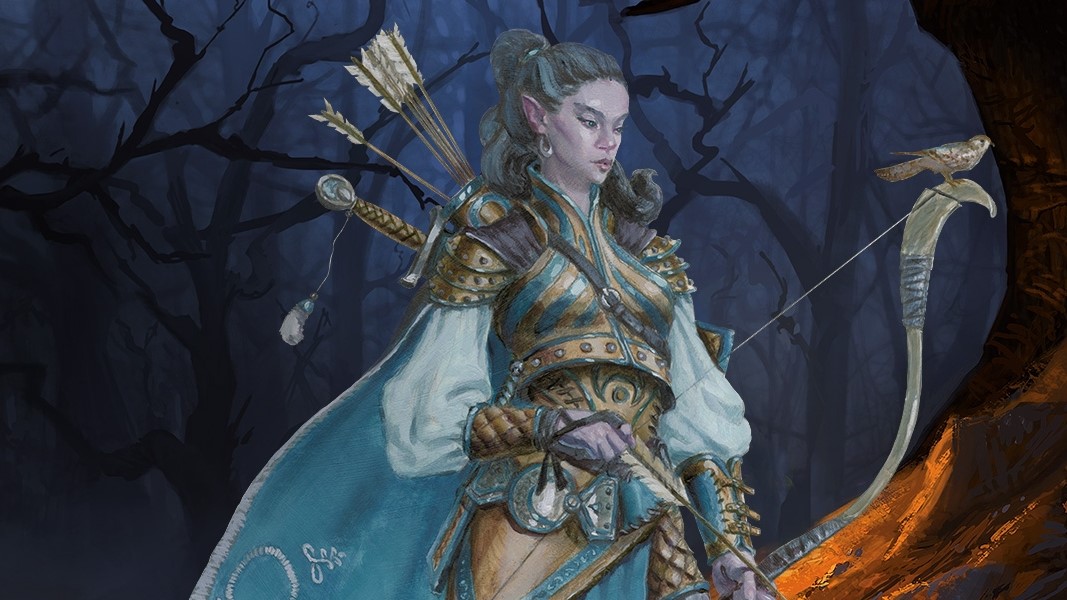 Read our full Ranger guide
Read our full Ranger guideRanger 5E
| Party Role | Damage dealer, Utility, Support |
| Primary Ability | Dexterity & Wisdom |
| Saving Throws | Dexterity, Strength |
| Hit Dice | 1d10 per Level |
| HP at 1st Level | 10 + Constitution modifier |
A hybrid class perfect for any players that love exploration, Rangers are part-martial warrior, part-spellcaster and can be invaluable party members. A popular choice, Rangers are the masters of nature and can take on multiple party roles. They can be both melee and ranged damage-dealers, cast control spells, and provide heaps of utility for a campaign with their tracking abilities.
Rangers get a ton of choices as they level up. They can select things like favoured terrain and enemies, so it is always a good idea to consult with your DM when character building. Focus on raising your dexterity score for damage and wisdom or constitution for spells and skills.
Have you already donned your forest-green armour and nocked an arrow in preparation for the Ranger’s life? Best check out our comprehensive D&D Ranger 5E guide for all the key subclasses, races, builds, and more.
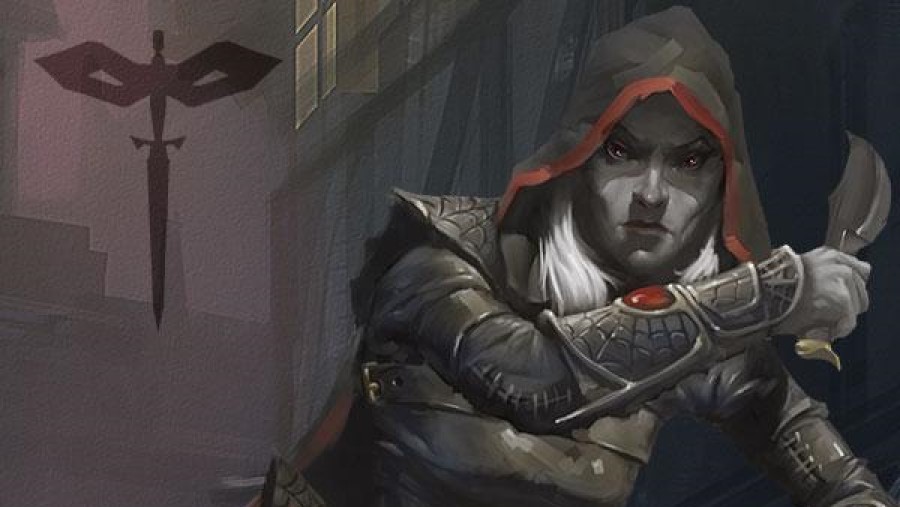 Read our full Rogue guide
Read our full Rogue guideRogue 5E
| Party Role | Damage dealer, Utility |
| Primary Ability | Dexterity |
| Saving Throws | Dexterity, Intelligence |
| Hit Dice | 1d8 per Level |
| HP at 1st Level | 8+ Constitution modifier |
Rogues are an elusive class who pride themselves on their ability to pick your pockets while stabbing you in the back. Awarded the most skills out of all classes, a Rogue can build themselves into an irreplaceable ‘multi-tool’ teammate, picking locks, gathering information and deceiving their way out of disputes.
With abilities like sneak attack, they can obliterate single targets, making them satisfying to play for damage-dealing. Focus on raising your Rogue’s dexterity score, and strategically pick your level-up options to support the playstyle you want.
Ready to hit the backstreets and make a name for yourself? Check out our comprehensive Rogue 5E D&D class guide to dive deeper into the shadows.
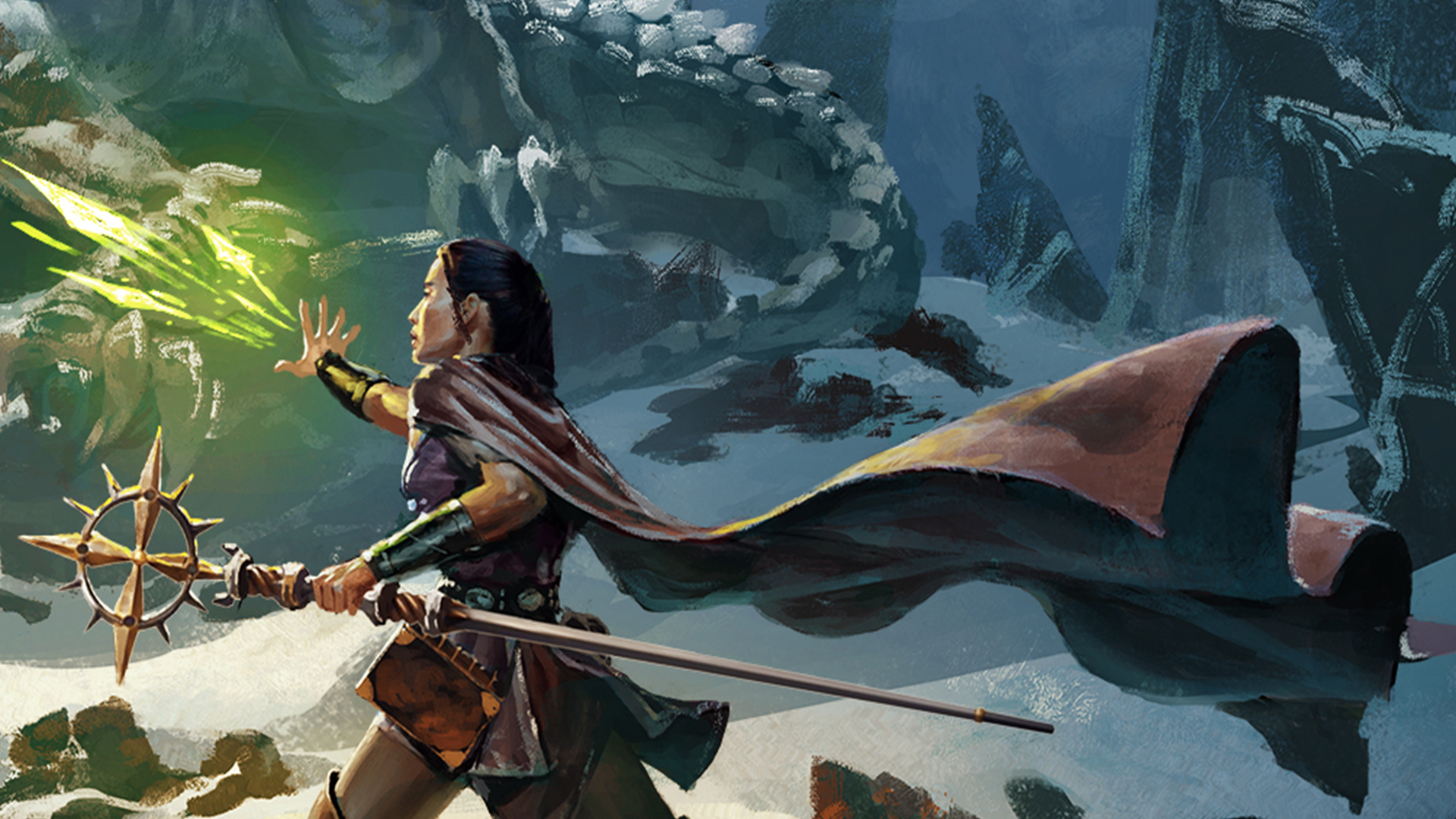 Read our full Sorcerer guide
Read our full Sorcerer guideSorcerer 5E
| Party Role | Damage dealers, Control |
| Primary Ability | Charisma |
| Saving Throws | Constitution, Charisma |
| Hit Dice | 1d6 per Level |
| HP at 1st Level | 6 + Constitution modifier |
Unlike other spellcasters, Sorcerers have their magic granted through natural means; their powers come from raw ability. Quite a complex class but offering versatile spells make Sorcerers well-equipped for most dungeon crawling and social interactions.
With their proficiency in constitution saving throws and ability to use sorcery points to make more spell slots, they are an enticing spellcaster class for any player. Focus on raising your charisma score for spellcasting and remember that fire spells in D&D 5E are always a powerful choice.
Think you can feel the arcane blood coursing through your veins? Read our exhaustive Sorcerer 5E class guide to channel your powers.
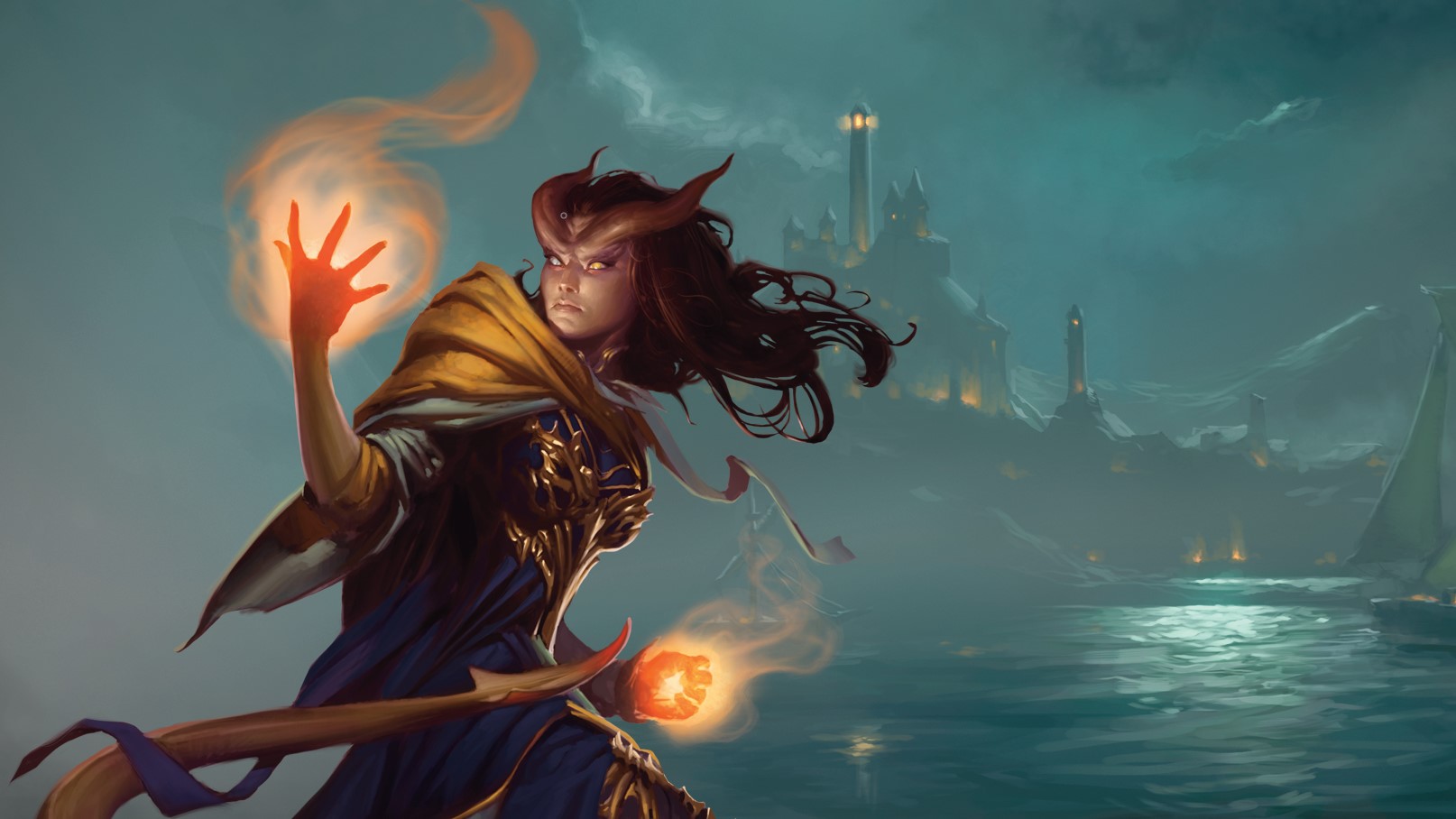 Read our full Warlock guide
Read our full Warlock guideWarlock 5E
| Party Role | Utility, Damage dealers, Control |
| Primary Ability | Charisma |
| Saving Throws | Wisdom, Charisma |
| Hit Dice | 1d8 per Level |
| HP at 1st Level | 8 + Constitution modifier |
Spellcasters who form a pact with an otherworldly patron, Warlocks are granted incredible powers, making them uniquely strong damage dealers and unlike any other spellcaster in 5E. Despite their deceptively easy spellcasting, Warlocks are a mechanically complex class. Each level-up choice is meaningful and requires strategic thinking.
Their obligation to and relationship with their patron make them a story-building goldmine. You can be a cultist working for the fiends of hell, or an agent of the fey – the possibilities are endless. Great for damage-dealers to multiclass into, too. Focus on your charisma score for spellcasting.
Ready to make your pact with forces unknown? Dive in deep with our Warlock 5E guide, complete with all the Warlock races, subclasses, and builds you’ll need to get started.
 Read our full Wizard guide
Read our full Wizard guideWizard 5E
| Party Role | Utility, Damage dealers, Control |
| Primary Ability | Intelligence |
| Saving Throws | Intelligence, Wisdom |
| Hit Dice | 1d6 per Level |
| HP at 1st Level | 6 + Constitution modifier |
Wizards and fantasy go hand in hand, and many players will no doubt gravitate towards this class. With eight schools of magic to choose from and a unique spellbook mechanic, Wizards immerse players completely into the ‘studious magical genius’ role, making roleplaying a breeze. They are a versatile class and can obliterate multiple enemies at once, but are quite vulnerable due to their low hit dice.
Although tricky at first, once you understand the spellbook mechanic and how to utilise abilities like mage armour, a Wizard can be one of the party’s most effective damage-dealers. Focus on your intelligence score for spellcasting – and remember to keep your spellbook safe!
You have been accepted to Wargamer’s School of Wizardry and, er, Wizardry! Report to your first… ahem… class in our D&D Wizard 5E guide, explaining the key Schools of Magic, best Wizard spells, and more.
Artificer 5E
| Party role | Support, Utility |
| Primary ability | Intelligence (or Strength or Dexterity) |
| Saving throws | Intelligence and Constitution |
| Hit dice | 1d8 per Artificer level |
| HP at 1st level | 8 + Constitution modifier |
The Artificer is a tinkerer and a lover of tools. Using powerful magical infusions, an Artificer can create and bolster magical items and weapons that will really help your party pack a punch. The Artificer plays a big role in supporting their peers – it’s up to them to make everyone as powerful as possible.
Of course, that isn’t to say that you have to help your party out at all times. Feel free to roleplay petty grudges or selfish motivations for not passing out all the hottest new gadgets – Wisdom is a common ‘dump’ stat for this class, so you definitely don’t have to be wise all the time.
Want to become a master of golems, explosives, and more? Check out our full D&D Artificer 5E class guide for all the tools you need. You might also want to pick up a copy of Tasha’s Cauldron of Everything for a comprehensive look at this class.
Blood Hunter 5E
| Party role | Control, Damage dealers |
| Primary ability | Strength or Dexterity |
| Saving throws | Dexterity and Intelligence |
| Hit dice | 1d10 per level |
| HP at 1st level | 1d10 + Constitution modifier |
The Blood Hunter is a homebrew class from the mind of Critical Role Dungeon Master Matt Mercer, but it’s proven popular enough to get its own unofficial write-up on D&D Beyond. Based in part on The Witcher, Blood Hunters sacrifice their own health – and blood- to use the power of hemocraft magic against evil.
There’s a lot of roleplay potential in Blood Hunters. They gather in secretive orders, are misunderstood by much of society, and they must constantly grapple with the darkness within – as the darkness they use to fight evil may one day consume them all together. Roleplay aside, there’s also plenty of ways to customise your hemocraft to deal damage to baddies in new and interesting ways.
Looking to join a Blood Hunter order? First, you’ll need to undergo the Hunter’s Bane ritual – then you should check out our D&D Blood Hunter 5E guide for everything you need to create a character.
Source: Wargamer



